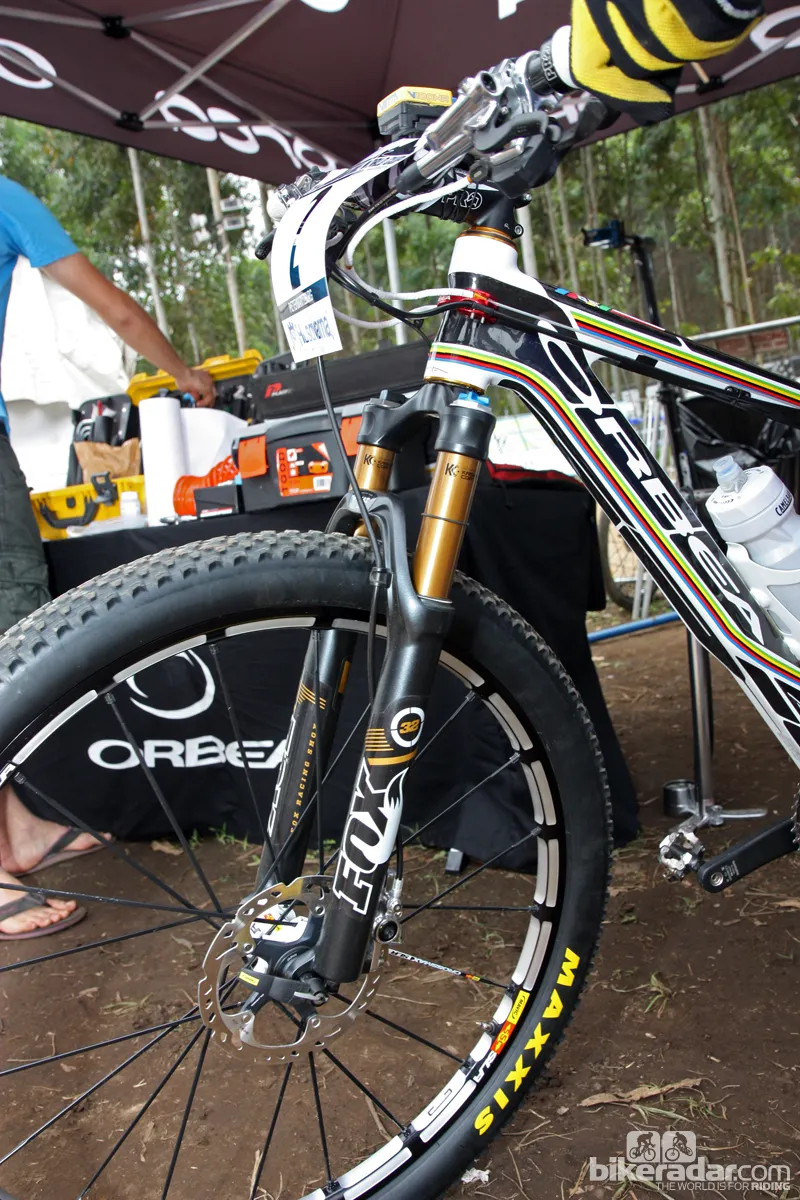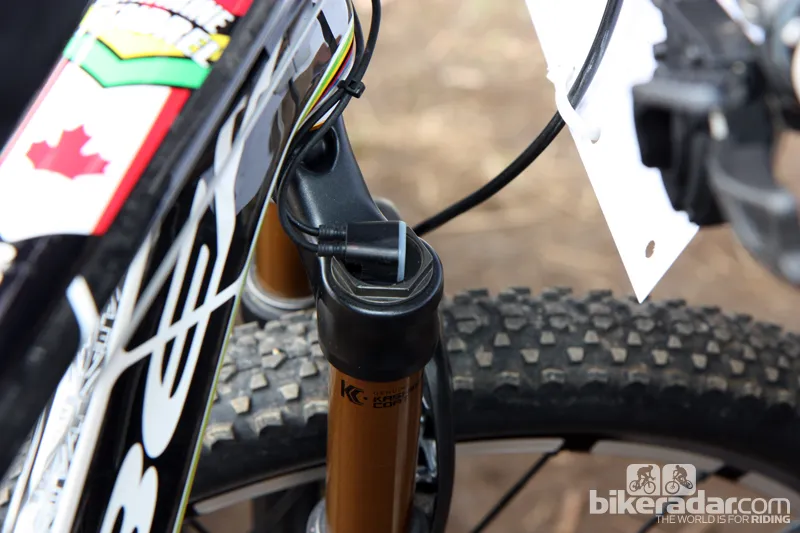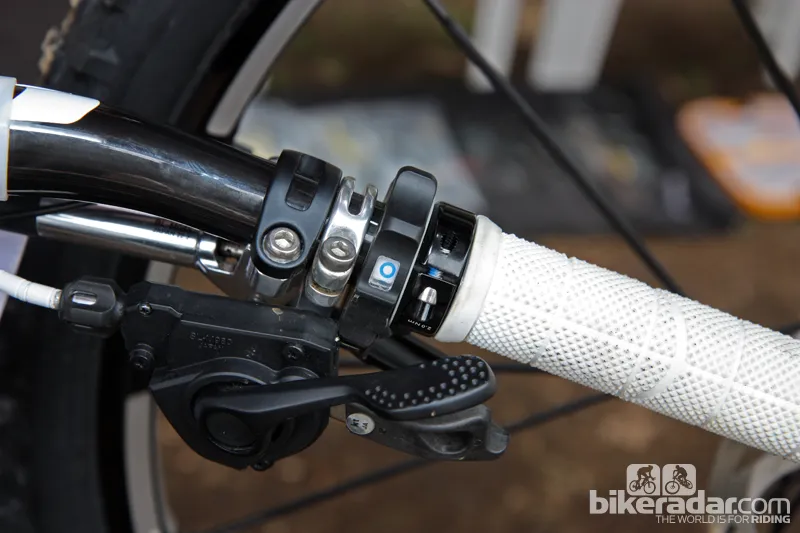Fox Racing Shox released information, today, of their new Float iCD electronic suspension project, previously seen in prototype form on the bikes of Geoff Kabush (Scott-3Rox Racing) and Catharine Pendrel (Luna). The new electronic damper will be available for sale in 2012 for both forks and rear shocks.
While we're still anticipating a highly advanced terrain-sensing system to be announced in the coming months, for now Fox say the system is essentially what it appears to be: an electronic remote lockout system that controls either the fork only or the fork and rear shock simultaneously.
The new system is part of Fox's Intelligent Ride Dynamics (iRD) advanced development group and switches between an ultra-firm 'Climb' mode and fully open 'Descend' mode (but not a 'Trail' mode like on the MY2013 traditional forks and rear shocks) via a bar-mounted rotary switch with two or three positions depending on the application: Climb (fork and rear shock), Climb (rear shock only), and Descend (fork and rear shock).
Developed in cooperation with Shimano, Float iCD uses a rechargeable Li-ion battery borrowed from the Japanese company's Di2 electronic road transmission to power a tiny actuator rod inside the fork and rear shock. The wires are identical to those used in the current Ultegra Di2 6770 group and claimed battery life is upwards of 2.5 months.
According to FOX, the Float iCD system can also be hooked up to a laptop computer to customize the remote switch settings, update the firmware, and access diagnostic protocols. Claimed weight for a complete fork and rear shock is as little as 1,860g (4.10lb) while the fork alone will start at 1,555g (3.43lb). Projected consumer availability is this September.

The new FOX Float iCD system will be offered in both forks and rear shocks starting this September
While certainly intriguing, Float iCD is also very expensive with a complete fork system estimated at US$1,499 and a fork-plus-rear shock setup costing a whopping US$1,999. All Float iCD forks with include FIT dampers and Kashima-coated upper tubes with options to include 100mm or 120mm of travel, 26" or 29" wheel fitments, and 9mm or 15QR thru-axle dropouts. Rear shocks will be offered in 6.5 x 1.5" to 7.875 x 2.0" sizes and in standard or high-volume air can options.
At this point, many of you are undoubtedly wondering: if the Float iCD system is little more than an electronic lockout (at this stage, anyway), what's the point?
According to Fox global marketing communications manager Mark Jordan, Float iCD's main advantages over a traditional cable-operated remote system are a faster initial setup, lower maintenance, and easier operation while on the trail.
Claimed actuation speed is also lightning-quick at just 0.25 seconds for the fork and 0.45 seconds for the rear shock. "The most important advantages happen on the trail through the speed of the adjustments, ease of use and very low remote activation force required," he told BikeRadar. "These three features promote increased use over a standard cable system with less fatigue, which allows riders to take advantage of this system much more often to greatly increase the efficiency of their mountain bike by constantly matching the suspension tune to the terrain."
Fox project engineer David Batterbee adds there are some more advanced functions built into the system, too.
"For every switch position, riders can program whether both the fork and shock are in climb mode or descend mode. Riders could, for example, program the middle switch position to lock only the fork or only the shock. Another interesting feature of the software is that it counts the number of switch operations and it will report how many times the fork and shock have been locked out."
Not convinced yet? We'll admit to being skeptical ourselves but Fox have promised a sample setup for testing soon, so we'll reserve any judgment until then.

